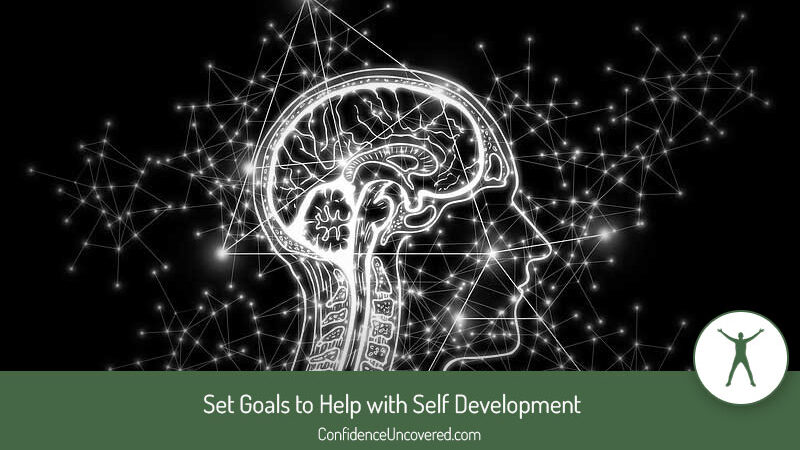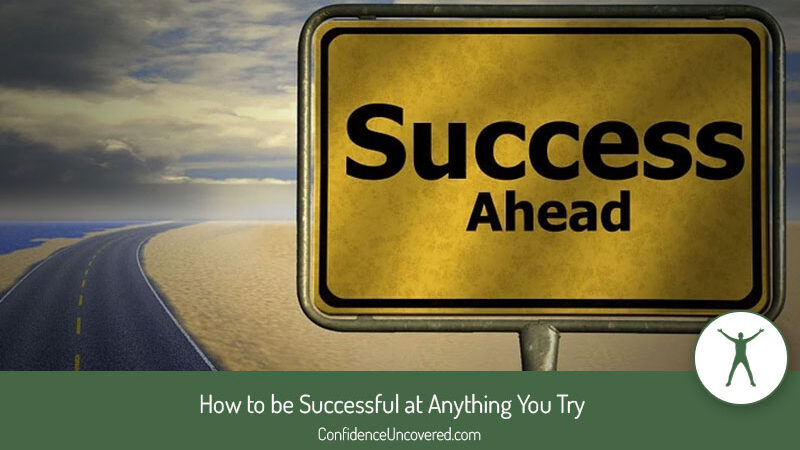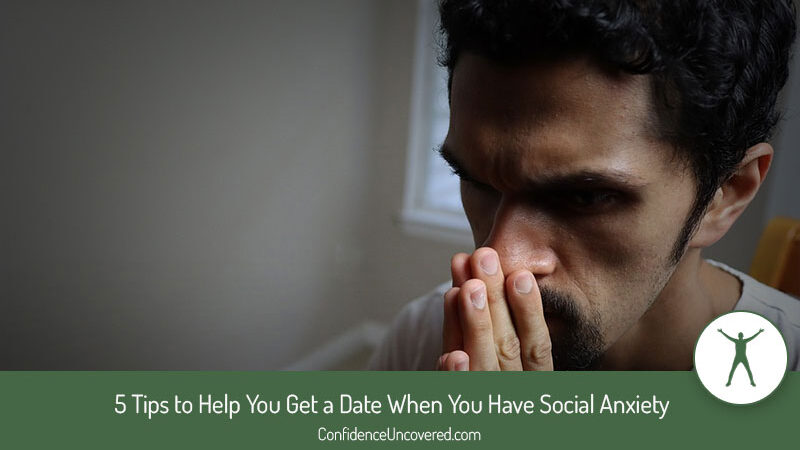How Can I Learn to Trust Myself More?

Do you trust yourself?
Do you struggle with self-belief?
Do you dismiss compliments, because you think you didn’t earn them? Even at work, do you shrug off compliments, by saying, “Just doing my job”? Yeah, I did too.
Learning to trust yourself is all about building your self-belief. So today, I’d like to explain a bit more about that, and give you some tools to help you accomplish it for yourself.
Learning to trust myself
 There was a time, years ago, when I really struggled with a lack of self-belief. And what made it worse, was at the time, I was certain I was the only one feeling like that.
There was a time, years ago, when I really struggled with a lack of self-belief. And what made it worse, was at the time, I was certain I was the only one feeling like that.
I had it in my head that there was something wrong with me and that no one else could possibly be feeling the things I was feeling. And I literally couldn’t see a way out.
Now obviously, I knew logically that millions of people suffer with low self-belief, but I didn’t acknowledge it internally. I guess I just wanted to believe I was struggling more than anyone else.
But then, as I learnt more, I started to finally take some small steps. Really I suppose, just to see what I could do.
I found that if the steps were small enough, I could convince myself to do them, even if I really didn’t want to. And that’s what got me started. Got me to try different things.
Making the changes that help build self trust
And then, once I’d got a better understanding of what self-belief really was… which is basically, a belief in your ability to do something, I started to wonder why it affects so many people.
Why do so many people struggle with self-belief?
Because, after all, you’re the only one who can decide what you’re capable of doing. It’s your own standards you’re trying to reach, so you’re the only one you need to convince.
 It’s not as if you have to prove yourself to other people, which is an entirely different subject. Self-belief is all about convincing yourself, that you’re good enough.
It’s not as if you have to prove yourself to other people, which is an entirely different subject. Self-belief is all about convincing yourself, that you’re good enough.
Now, one of the biggest struggles I had and if I’m honest, I sometimes still do, is having to know that I’ve learned everything I can about something, before I put it into practice myself. But, the trouble with that, was nothing ever got done, because there’s no way I could know everything.
Commitment and regular practice undoubtedly makes you much better, but you can’t always be perfect. Just remember that you if you don’t ever start, there’s nothing to get good at.
So, one of the biggest hurdles to get over, is the fear of failing, or being rejected. And that’s really just about you worrying you’ll never reach what you see as an acceptable standard. And that’s very often top of the issue tree for anyone with a low self-belief.
So, what can you do about it?
Well initially, you need to commit to doing something, that helps you at least start to move forward.
Almost everyone struggles to believe in themselves at some point.
I know for me, that in the past, I was very stuck in my ways.
It was a huge struggle for me to venture outside my comfort zone. In fact, I often tried to convince myself that really, everything was okay and if I wasn’t doing it already, then I probably didn’t really need to do it anyway.
In truth though, I didn’t try, because I didn’t want to mess it up.
 Now like everyone, I still have days when I’m pretty sure another failure’s going to turn up to bite me. But, I’ve come to accept that’s part of life.
Now like everyone, I still have days when I’m pretty sure another failure’s going to turn up to bite me. But, I’ve come to accept that’s part of life.
Sometimes, I’ll do things when I know I’ll likely fail, or I won’t be the best I can be. And that’s okay.
I’ve learnt over the years that it’s making a start that’s important. I can always get better later.
Something else that has a whole different meaning for me now is failure.
Failing isn’t such a bad thing after all. Because, it’s only by failing (or, at least not fully succeeding) that we can grow. And that means we can do better next time.
It’s only by failing, that we look to get better and it’s only by failing a lot, that we can truly be the best we can be.
Now I know Failure is a strong word, but to me now, it really just means not being perfect. Not always being right. Not having everyone accept what I’m saying without question. And not having all of the answers to every question.
It’s important to fail sometimes, so you can see where your weaknesses are. It’s the only way to truly learn how to be better, and it’s an important part of building trust in yourself and achieving any of your goals and dreams.
If you make a mistake, use the feedback to help you understand what the problem was. Then, learn from the mistake and you’ve grown a bit more. Next time you’ll be better.
Trusting that you’re capable
So, improving your level of self trust and building your self-belief is all about growing everyday as an individual.
And the best way to grow is to start with small, almost irrelevant actions that push you just a little bit outside your comfort zone. Things where it doesn’t really matter if you mess them up.
Then, learn from any mistakes you make, then try the newer, better version next time. See every mistake as an opportunity to learn and grow, then get back to trying again!
Building your self-belief
So, let’s get on to some of the different things you can try. And, everything I’m about to go over will, over time, help you to grow and increase your level of self belief;
-
- Step slightly outside your comfort zone every day. Just push past that little bit of initial discomfort. See it as an opportunity to grow, rather than an opportunity to fail. Stepping outside your comfort zone needn’t be difficult. I could be something as simple as making a phone call you’ve been putting off, or making a start on the Business Plan you need to do before you can even think about leaving your job. But whatever it is for you, the trick is just to do SOMETHING and trust that you’ll be okay.
-
- Accept that not everyone’s going to like you. Not everyone’s going to like what you do, or what you say. You won’t ever be able to please everyone, so why not just concentrate on pleasing yourself? If you’re constantly spending your life trying to satisfy everybody else, you’re never going to get anywhere. You can’t change another person’s feelings or expectations, so why even try. Why not just use some of that wasted energy to make yourself better.
-
- Spend more of your time completing small, positive things and then build on those successes. And before you know it, you’ll realize you’re good enough to do what ever you want. And once you believe it, it won’t matter what anyone else thinks.
-
- Don’t listen to the negative self-talk that normally holds you back. Everyone’s got a negative gremlin. And it’s there to help protect you from danger. It brings your attention to anything that might cause you harm. But, the thing to remember is that it only brings it to your attention. It’s up to you to decide whether you accept it or not. So when your gremlin pops up, ask yourself “What’s the worst that could happen?” You’ll often find it’s not that big of a deal anyway.
-
- Try going into situations even when you’re not entirely sure of the result and learn to be okay with that. When you decide to take a chance, remember that the greatest successes often come from the biggest failures. A great example is the Post-It note. Did you know, that Dr. Spencer Silver, the 3M scientist that developed the glue on a post-it note, was at the time actually trying to develop the strongest glue available. So without that failure, we might never of had post-it notes! So remember it’s okay to struggle, or fail sometimes, you can still be okay with failure. What’s most important is that you carry on trying every day.
Final thoughts
So, there you have it, 5 simple things that will increase your self-belief…
- Step slightly outside your comfort zone every day.
- Accept that not everyone’s going to like you.
- Set yourself up collect as many small wins as you can.
- Don’t immediately accept what your negative gremlin tells you.
- Try doing things, even when you’re not sure what’ll happen.
And, if you use them as often as you can, you’ll soon find you’re much more capable than you thought you were.
Also, remember that you’re stronger, more competent and more tolerant of initial discomfort, than you think. And you won’t really know if you can do anything, until you try it.
So, go out there and try, learn from your mistakes, then try again! And before you know it, your beliefs about what you can achieve will improve dramatically.




